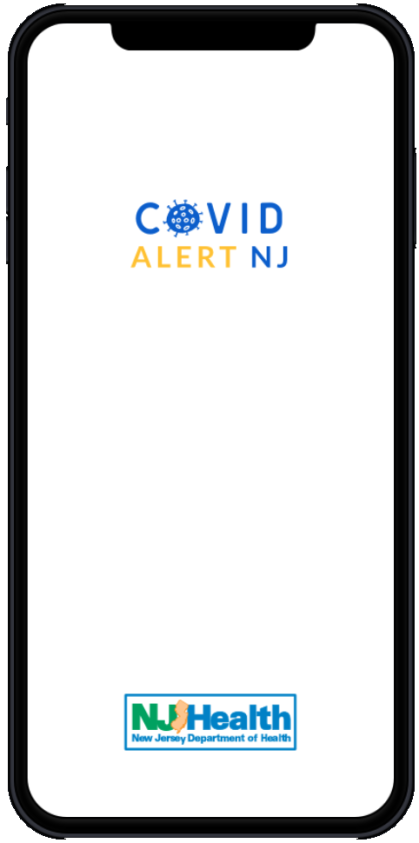Eagleton Science Fellow Makes Impact With COVID Alert NJ App

Eagleton Science and Politics Fellow Hanna Sherrill, an aide at the New Jersey Department of Health who has a doctoral degree in neuroscience, has been working since the spring on the COVID Alert NJ app to alert users when they have been exposed to a person who has tested positive for the coronavirus.
The Eagleton Science and Politics Fellowship, which places Ph.D.-level scientists and engineers in state government to provide expertise to the development and implementation of relevant state policy, is helping to fill a need the pandemic brought into the forefront for scientists to work in government and policy. Sherrill talked to Rutgers Today about her work on the app and why it's important to use.
How does the COVID app work?
COVID Alert NJ is an exposure notification app that alerts users if they have been exposed to a person who has tested positive for the coronavirus. The app works through an underlying system developed by Google and Apple, which uses Bluetooth proximity detection that logs Bluetooth devices that have been within six feet of the user. To approximate distance, the system compares the Bluetooth signal strength between the two devices in contact and then the devices exchange anonymous codes after they’ve been in close proximity to one another. If an app user tests positive, they are contacted by a state contact tracer, who gives them a validation pin to enter into their app. Then, the app alerts other users who were in close contact with the coronavirus-positive person within the last 14 days, explaining that they were potentially exposed to the virus. The app also provides advice for self-isolation and testing.
The COVID Alert NJ app is 100 percent voluntary at every step. Users make the choice to turn on, utilize, provide information or deactivate the app. COVID Alert NJ does not turn on, use or collect any GPS location data. Alerts do not share the identities of other users to one another, the New Jersey Department of Health or any other entity. It’s important to note that COVID Alert NJ does not share the identity of positive cases with other app users, Google or Apple. Watch this video to learn more about how exposure notification apps work.
How can New Jerseyans download the app and why should they use it?

Every person who has an eligible phone can download COVID Alert NJ to help reduce the spread of COVID-19. The app fills some of the gaps in traditional contact tracing, notifying people that you don’t necessarily know, such as customers at work, people on public transit or people in line at the coffee shop or grocery store. The app helps users feel anonymous since it never asks for or uses names, emails, phone numbers or locations. The app is available in the Apple App Store and the Google Playstore. Visit the NJDOH website to download the app and access FAQs.
Why are you interested in the intersection of science and politics?
I’ve always been passionate about the intersection of science and politics. I grew up in the Unitarian Universalist Church, which focuses on social justice. As a result, one of my core values is fighting for meaningful change for our society.
The Eagleton Science and Politics Fellowship has given me the opportunity to channel my passion for social justice with my scientific skills and knowledge that I learned as a biomedical researcher to make meaningful changes to society that strengthen New Jersey’s COVID-19 response and help the state’s citizens. The app was just my first project and I’m looking forward to my next, which is helping to improve contact tracing.


